Joss sticks light a brighter future
Town beats poverty with help of Tibetan heritage workshops

Melmo, 20, and her co-workers lit Tibetan joss sticks inside a workshop in Rantang county, Sichuan province, to test their handiwork and soon the air was thick with incense.
The county seat, Rangtang town, is located in the Aba Tibetan and Qiang autonomous prefecture and means "the place of the god of wealth" in Tibetan.
After graduating from a vocational high school, Melmo returned to Rangtang and became a Tibetan joss stick maker and a visitor guide. Through her job at the workshop, Melmo can earn about 3,000 yuan ($432) a month.
She said summer is the most beautiful season in Rangtang and joss stick makers can "go to the mountains and find many herbs for incense production".
Tibetan joss stick making dates back more than 1,000 years. Making the sticks according to traditional methods involves collecting more than 100 different herbs, drying and grinding them, then mixing the paste. The mixture is then pressed into sticks, dried, and packed into boxes.
In 2008, the process was added to the country's intangible cultural heritage list.
About 10 years ago, the local government helped establish the joss stick workshop and instructors began teaching the villagers how to make them. More than 200 people from the Tibetan ethnic group have received training and a dozen of them have become inheritors of the traditional craft.
A number of workshops teaching traditional Tibetan intangible heritage, such as thangka, or Buddhist scroll painting, stone carving and joss stick making, have mushroomed in the town and helped residents shake off poverty.
The Rangtang government has helped establish 47 workshops to promote intangible cultural heritage items that have provided employment for 3,000 local farmers and herders. As of September, 1,600 of them had shaken off poverty.

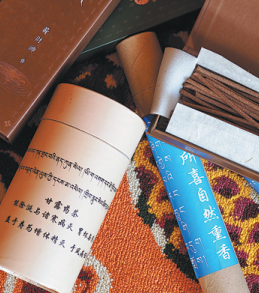
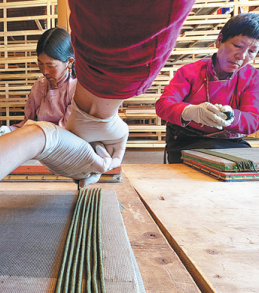
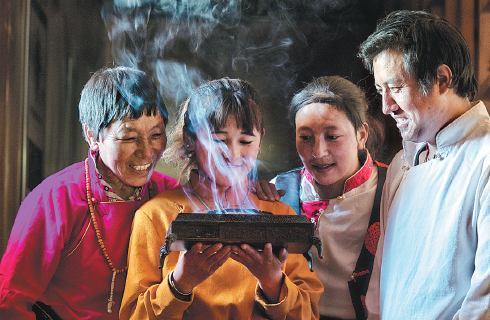
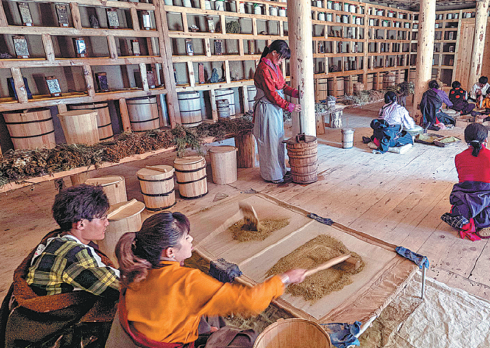
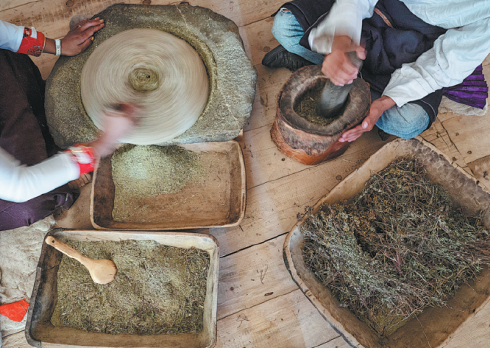
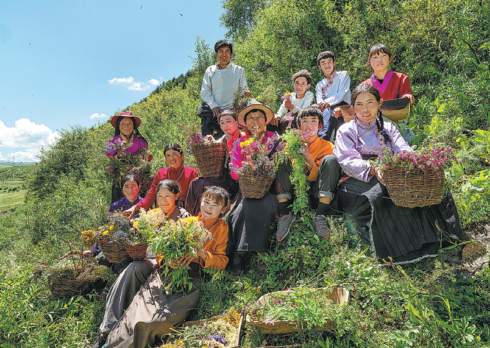
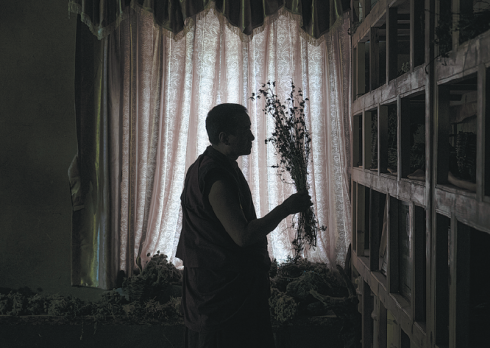
Today's Top News
- More dialogue encouraged for peace, stability across Eurasia
- Pakistan, China to deepen media, culture cooperation
- Youth choir festival set to bolster Sino-US friendship
- Build network for cooperation, dialogue, Xi says
- China, Egypt called on to make new advances in ties
- Mutual learning of civilizations contributes to world peace and common development






























